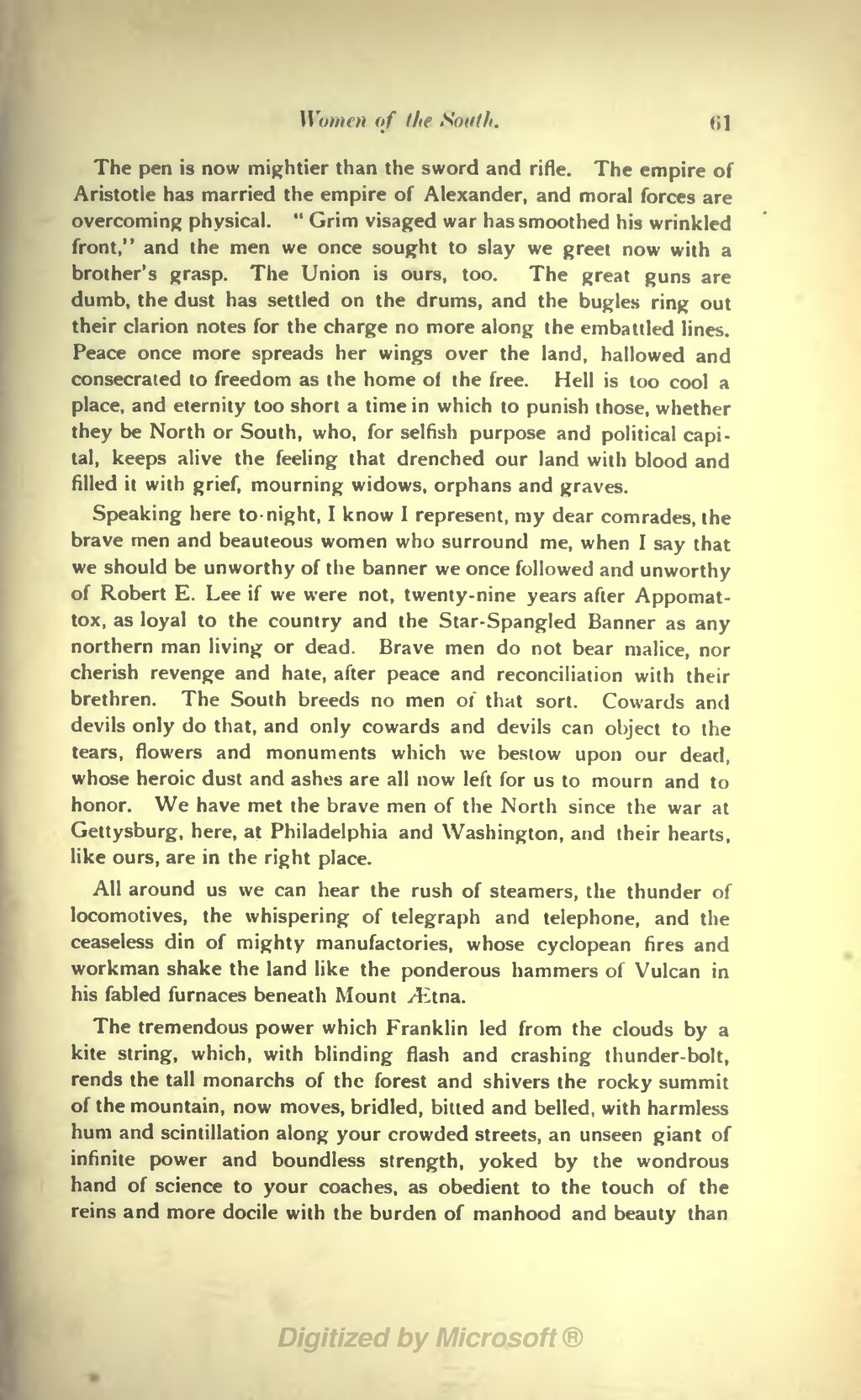\\'< until <(' I In South. Ill
The pen is now mightier than the sword and rifle. The empire of Aristotle has married the empire of Alexander, and moral forces are overcoming physical. " Grim visaged war has smoothed his wrinkled front," and the men we once sought to slay we greet now with a brother's grasp. The Union is ours, too. The great guns are dumb, the dust has settled on the drums, and the bugles ring out their clarion notes for the charge no more along the embattled lines. Peace once more spreads her wings over the land, hallowed and consecrated to freedom as the home ol the free. Hell is too cool a place, and eternity too short a time in which to punish those, whether they be North or South, who, for selfish purpose and political capi- tal, keeps alive the feeling that drenched our land with blood and filled it with grief, mourning widows, orphans and graves.
Speaking here to-night, I know I represent, my dear comrades, the brave men and beauteous women who surround me, when I say that we should be unworthy of the banner we once followed and unworthy of Robert E. Lee if we were not, twenty-nine years after Appomat- tox, as loyal to the country and the Star-Spangled Banner as any northern man living or dead. Brave men do not bear malice, nor cherish revenge and hate, after peace and reconciliation with their brethren. The South breeds no men of that sort. Cowards and devils only do that, and only cowards and devils can object to the tears, flowers and monuments which we bestow upon our dead, whose heroic dust and ashes are all now left for us to mourn and to honor. We have met the brave men of the North since the war at Gettysburg, here, at Philadelphia and Washington, and their hearts, like ours, are in the right place.
All around us we can hear the rush of steamers, the thunder of locomotives, the whispering of telegraph and telephone, and the ceaseless din of mighty manufactories, whose cyclopean fires and workman shake the land like the ponderous hammers of Vulcan in his fabled furnaces beneath Mount /Ktna.
The tremendous power which Franklin led from the clouds by a kite string, which, with blinding flash and crashing thunder-bolt, rends the tall monarchs of the forest and shivers the rocky summit of the mountain, now moves, bridled, bitted and belled, with harmless hum and scintillation along your crowded streets, an unseen giant of infinite power and boundless strength, yoked by the wondrous hand of science to your coaches, as obedient to the touch of the reins and more docile with the burden of manhood and beauty than
